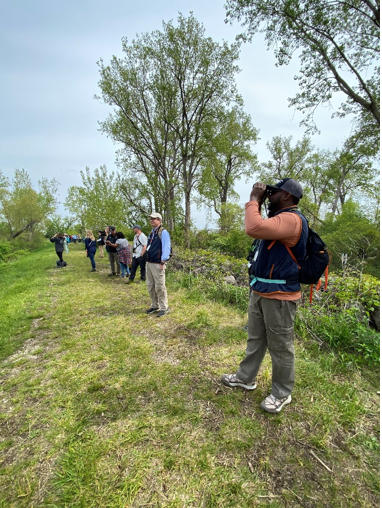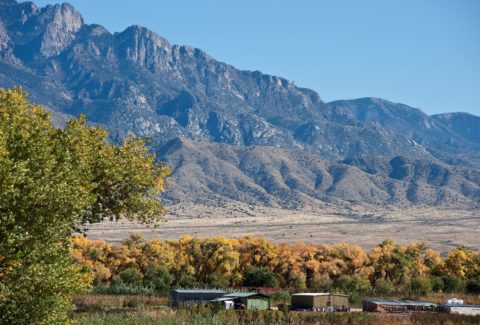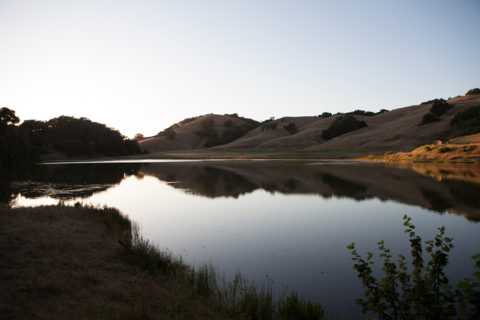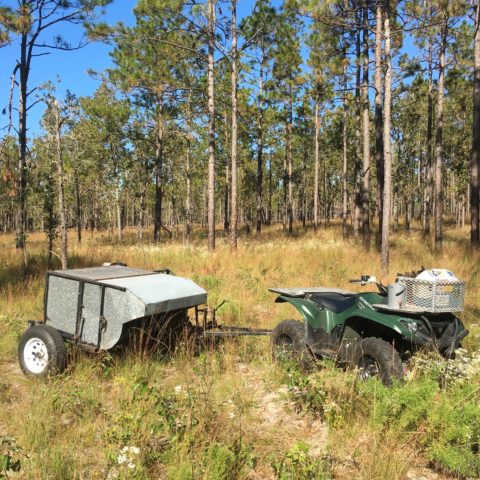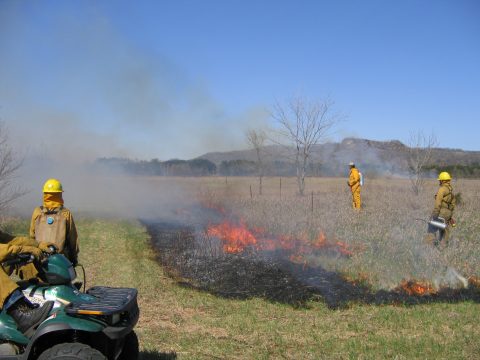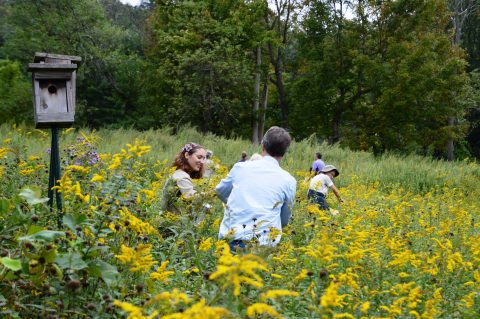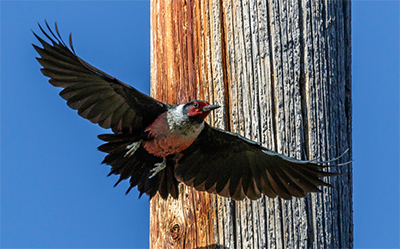2018 Small Grant Awardees
The Cornell Land Trust Small Grants Program is very excited to award its second set of grants to support strategic bird conservation within the land trust community!
The three organizations receiving funds this cycle are, providing ecosystem incentive payments while working with farmers to develop delayed mowing schedules around grassland birds in Maine; utilizing eBird to formalize data collection and inform best management practices and strategic land acquisition for riparian birds in California; and focusing on engagement by training landowners how to manage meadows and early successional habitats, as well as developing resources for improving bird habitat in suburban landscapes in New York and Connecticut.
The Somerset County Soil and Water Conservation District (SCSWCD) and Coastal Rivers Conservation Trust (CRCT) (formally Damariscotta River Association) have created a partnership, called Ag Allies, to promote conservation of grassland birds throughout Maine’s agricultural landscapes. Through this initiative, they are providing education and technical support to land trusts, farmers, and landowners to help implement bird-friendly practices on their farms with a specific focus on the bobolink, whose population has declined by over 2% annually between 1966 and 2015. Building on a successful 2017 pilot season, Ag Allies, is conducting spring surveys on potential partner farms, building individual management plans, developing delayed mowing schedules, and continuing to monitor nesting and fledgling success throughout the breeding season. The initiative includes an incentive program to promote delayed mowing on critical grassland habitat in the project area by providing a payment for ecosystem services to partnering farmers. “Ag Allies helps farmers make room for critical conservation on working agricultural lands in ways that accommodate individual farms’ management needs,” says SCSWCD Technical Director Laura Suomi-Lecker. Working with scientists from the Cornell Lab, Maine Inland Fish and Wildlife Service, and local farmer partners, the project will continue to protect critical nesting habitat for Maine’s grassland birds in 2018. “CRCT is committed to managing grassland habitat to seek a balance between agricultural needs and the needs of the wildlife that depend on this habitat,” said CRCT Lands & Stewardship Director Jesse Ferreira. “Partnering with the SCSWCD and Ag Allies has really helped us improve our understanding and management of these habitats.”

The Mendocino Land Trust (MLT) is leading a citizen science program in California consisting of outreach, education, and data collection in valuable riparian and wetland habitat within the Big River area of the Mendocino Headlands State Park, a tract of land purchased by the organization and gifted to the California State Park (CSP) system in 2002. MLT is collaborating with the Mendocino Coast Audubon Society to engage and train citizen-scientists to conduct breeding bird surveys, and is using grant funds to build upon a well-established long-term monitoring program, utilizing eBird as a platform for storing and disseminating the data. “We want to formalize our data collection and extend our outreach to a wider audience with colleagues at nearby land trusts and environmental organizations,” says MLT’s Director of Conservation, Doug Kern. Results from MLT’s analysis of these data will help inform the CSP’s development and improvement of best management practices for breeding birds and inform strategic land acquisition surrounding Big River. “We seek to encourage our colleagues to undertake similar data collection efforts and to demonstrate the need for habitat preservation throughout our region.”
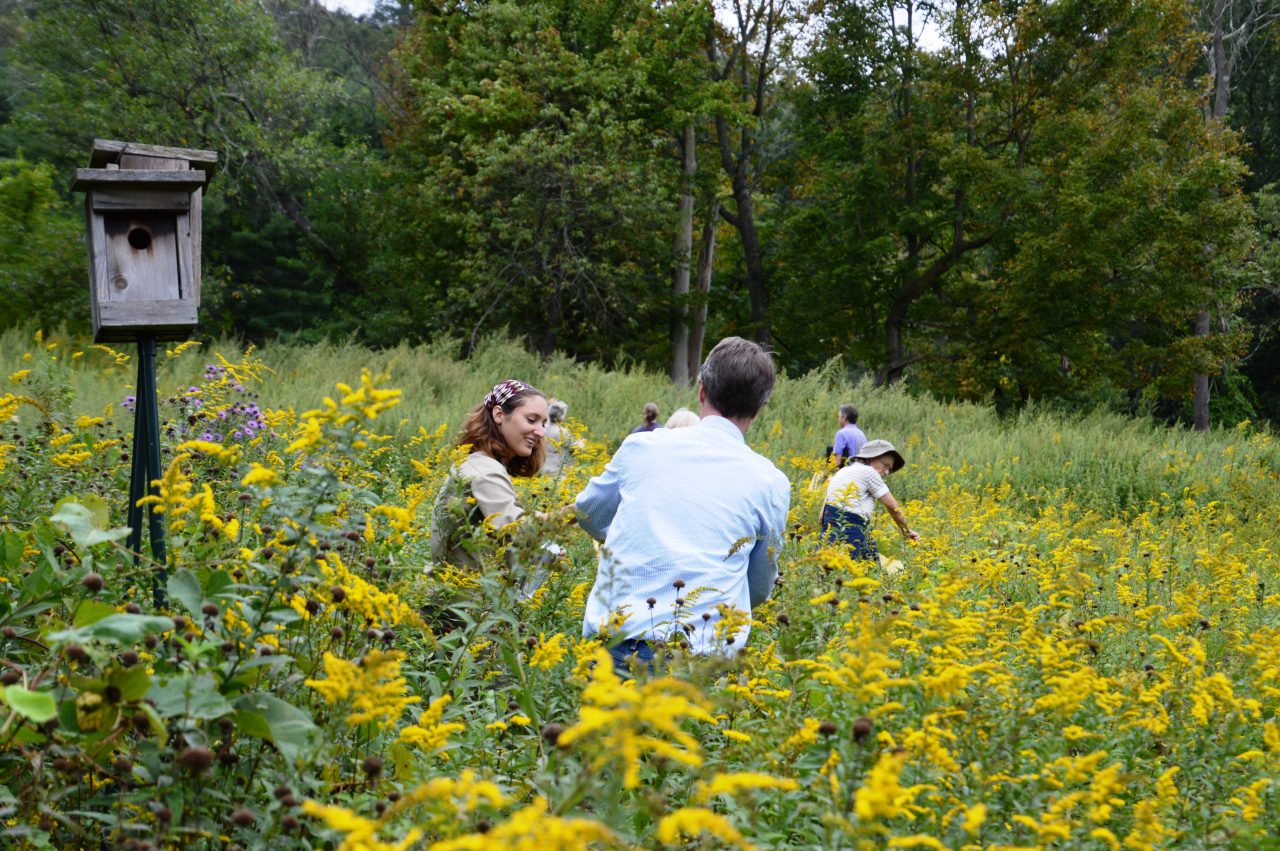
Building on an existing partnership spanning two states and engaging over three dozen partner organizations, the Westchester Land Trust and the Hudson to Housatonic Regional Conservation Partnership (H2H) are working to promote connectivity of bird habitat and increase the rate of land conservation throughout New York and Connecticut. H2H is targeting species of greatest conservation need throughout the region and utilizing tools, like eBird, to help partners engage new members and communities in citizen science by providing in-depth training and resources for landowner engagement workshops. These trainings include best management practices and techniques for managing early successional and young forest habitats and meadows, as well as chainsaw certification classes. “By engaging landowners on a topic of interest to them such as the loss of vital bird habitat, H2H partners will initiate conversations around larger conservation objectives,” says Westchester Land Trust’s communications director Zoraida Lopez-Diago. To reach the majority of landowners within the region, H2H is also developing resources for improving bird habitat in suburban landscapes through the development of achievable restoration techniques that support priority bird species in these environments. “We are deeply grateful to The Cornell Land Trust Bird Conservation Initiative for their generous support of this exciting project and look forward to engaging partners, landowners, and the community at large as we help educate each other in creating more bird friendly habitat throughout the region,” says Lori Ensinger, Westchester Land Trust President.
Small Grant Awardees
Sign up to receive our eNews and stay connected
The Land Trust Bird Conservation Initiative will send you updates about funding opportunities and ways to work with partners to protect birds and further your land conservation goals. We’ll highlight resources to assist with bird conservation on private lands, showcase tools and data visualizations to assist with planning and stewardship, and share success stories from the field.

